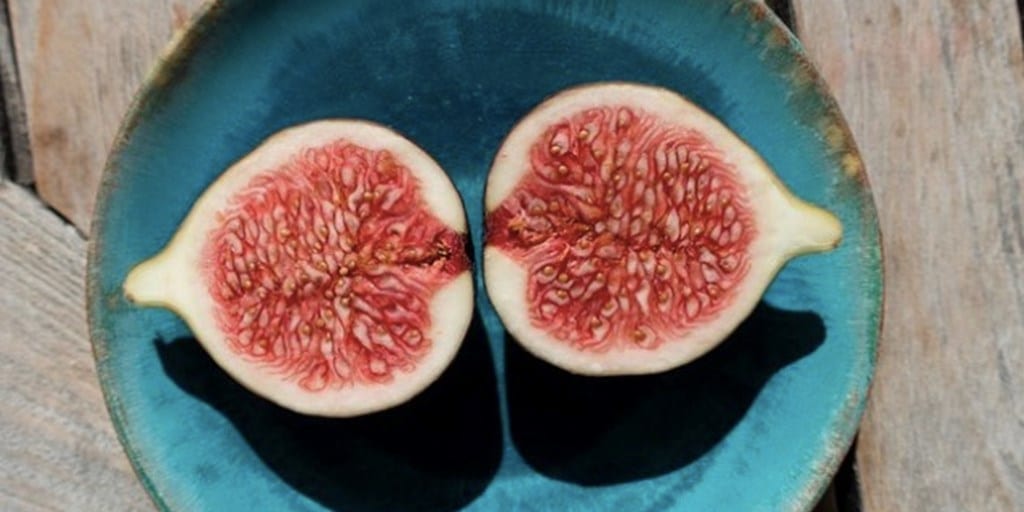I’ve been asked to write this post by many people for a long time, so here it comes. Let’s start with a full disclosure. I’m not a nutritionist. I’m also not interested in weight loss or slimming. Will this make my blog post irrelevant to you? Probably not, because I’ve travelled a long journey finding my balance for eating food that makes me energised and happy every day. I’ve discovered some key principles that will apply to all, and some important questions that you should find answers for yourself.
This is a long post. Sorry. I’ve tried to summarise and add links as relevant. But this will hopefully be one of the more helpful blog posts you read about how to eat to feel great. I don’t try to show you what to do. But what I do hope you will learn is to understand what areas you should pay attention to and why you should commit to find better answers to your diet. Your food mindset is no different to your money mindset. You can either adopt generally held beliefs and look for easy answers, or commit to finding a way that will fit you and make you successful.
My journey started 5 years ago. I’ve always had a healthy diet but 1,5 years after giving birth through a c-section to twin boys my body suddenly changed. Over night I started getting ezema on my skin and dandruff on my scull. I remember being on holiday and pouring olive oil onto my skull before going to bed to calm down itching so I could fall asleep. So bad it was. And this just happened, out of the blue.
I visited a skin doctor and asked him how should I change my diet to get better. He told me that my skin condition had nothing to do with how I eat, prescribed all sorts of medicine (which did ease the symptoms) and sent me home.
Lesson 1: if your doctor tells you you can’t change the way you feel by changing your diet, don’t believe him.
Months went by and I got my skin condition under control with the medicine but the condition didn’t go away. Then my aunt suggested I’d try to leave out gluten from my diet for two weeks and I should see if that was causing me trouble. In two weeks my symptoms were much reduced so I decided to stay gluten free from then on. In 6 months my skin had completely healed.
I started to do research into celiac disease and found out that surgery, pregnancy, childbirth, or severe emotional stress can trigger celiac disease symptoms. Well, I had all of the above.
However, I felt my body wasn’t yet in balance. I kept getting bloated, blocked and tired. I stopped eating all dairy products. I went to see a nutritionist. I tried all sorts of things but nothing really worked. I kept feeling worse and worse, and finally in October 2013 I was feeling so bad that I got desperate. I found a great doctor who was specialised in functional medicine and all matters of the intestine. I got an appointment for January 2014.
To cut a long story short, a lot of tests were taken and very precise results were delivered. I was not celiac but I was severely allergic to gluten AND all grains! My gut was severely damaged due to wrong diet and stress. Apparently this is very common for women hitting 40!
Here are the key principles I now live by when it comes to eating well. You should consider these points, check out the links, and then do your own research and trials. This is not to say – follow my diet. The most important thing is to accept that you can feel so much better if you understand the facts about food and don’t ignore them. Too many people simply brush it off saying “oh, I’m just like such and such food too much to change”. That’s all rubbish if it makes you feel bad.
Finding your own balance will take time. This is no quick fix or how to loose weight in 2 hours program! You have to discover a new way to live.
1) Avoid processed foods
I shouldn’t have to say this as you know processed food is really bad for you. Additives, E-numbers, artificial flavours are all substances that we humans don’t really need in our body are injected into all processed foods. They are harmful in many ways.
I generally only buy single ingredient foods. So, say I want to have a flavoured yoghurt. I buy natural full fat yoghurt (avoid low fat as it is unnatural and processed), strawberries and agave. These are all single ingredients and I mix them to make my flavoured yoghurt. I generally try avoid foods that come in a lot of packaging and definitely if it has a long ingredient list. I never buy ready-meals and I try to buy organic when ever possible. For instance I don’t eat non-organic chicken at all. Why?
2) Understand your grains
I can’t eat any grains, not even gluten free oats. My system was so badly damaged that grains are out, for good. This doesn’t mean you should eat like me.
But everyone who wants to feel energised and happy in their body should consider cutting off white wheat from their everyday diet. White wheat is simply bad for you. It’s processed, low in nutrition, high in carbs (sugars) and high in gluten.
Lesson 2: Gluten is dangerous because it damages the wall of the digestive tract, causing pain, bloating, stool inconsistency and tiredness.
I know this at first hand!
If you eat grains, choose only breads/pasta that are made from whole grains. Rye and oats are great. They are good for you as they are a great source of fibre.
But I do suggest you do some trials or see a doctor to get yourself checked if you suspect you are allergic. Try leaving all gluten out for two weeks (this is the time you need to empty your digestive system) to see how much better you feel. Then you can judge for yourself. You have to be completely free of gluten so this includes additives in crisps (well, you shouldn’t eat those anyway), sauces and spices. So read the labels!
To be honest, life without grains is fantastic. You can bake most recipes with gluten free flour and substitute wheat with buckwheat flour (which is not a ‘wheat’, it’s actually a seed of a herb!)
An important note: grains are not the same as carbs. Carbs are not bad, they are the body’s main source of fuel!
Investigate what kind of carbs suit your digestive system. I don’t eat white rice, except occasionally in sushi. At home I cook black rice. I eat potatoes, after all I’m from Finland and that’s how we Finns are brought up. If you eat grain based carbs, stick to the brown stuff. Vegetables high in carbohydrates are for instance carrots, beans and sweet potato.
3) Understand your sugars
We all know we shouldn’t eat too much sugar, but has anyone ever told you how much is too much?
There is no biological need for dietary fructose. Before the Europeans discovered the New World 500 years ago and the development of the worldwide sugar industry, fructose in the human diet was limited to a few items (honey, dates etc). At the same time, our lifestyle has become less mobile in terms of the need to run after our prey or do physical labour.
Sugar consists half glucose and half fructose. Glucose is vital to life, fructose is not. Fructose is bad for you.
Lesson 3: Don’t exceed 25g of fructose a day
My doctor told me I should not exceed 25g of fructose per day. I never really eat any sweets or chocolate so that part wasn’t a problem. But you’d be surprised how much fructose is in an apple (13g) or in a dried fig (11g) – well one of each and there goes my daily quota right there!
See the list of fructose in fruit & wine here.
I’m now sticking to avocados, cantaloupe melons and some pineapple and orange. And on the wine front I haven’t touched a glass (a bottle, ha ha) of rose wine ever since!
When you calculate your daily fructose intake from cakes, sweets, soda etc containing white sugar, count 50% or white sugar as fructose.
You get used to this very quickly and it becomes intuitive so it isn’t such a pain as it may sound.
4) Understand your fats
Fats are not all bad. Counting calories is irrelevant (and so 80’s!). Here’s a beginners guide to fats you need and the fats you don’t.
Most dietary guides only talk about saturated fats and trans fats (bad) and monounsaturated, polyunsaturated and omega-3 fatty acids (good). This is way too complicated for me and the whole thing evolves only around heart disease and cholesterol. My cholesterol is good and I’m unlikely to get a heart disease. So I find these terms misleading. For instance, you can find saturated fats in meat and cheese, humans have consumed meat since we were not much less hairy than the ape. So why should I swallow a blank statement that all saturated fats are bad? Besides I need protein and iron and other good stuff I get from high quality meats.
So here’s how I divided fats. I think of them as ‘cold fats’ ie the fats I eat un-cooked, and as ‘cooking fats’. This is by no means a scientific approach but my aim is to be practical. You can find the science in the links.
Cold fats
I’m not worried about the fat I get from meat. I generally only eat high quality meats, cooked at home and no junk. Milk products also contain fat and I know eating a lot of cheese is is not great because the fat it contains is mainly saturated. So I eat cheese in moderation. For the same reason I don’t put butter on my bread or crackers other than at weekends. Butter is my great pleasure and a big treat! I use hummus or just pour a dollop of good quality cold pressed rapeseed oil and sprinkle on some Maldon sea salt on my buckwheat cracker, that is. Or I may make my own spread mixing quark and cold pressed rapeseed oil.
I use cold pressed extra virgin rapeseed oil and cold pressed extra virgin olive oil very generously on everything! Oh yes, it has to be ‘cold pressed extra virgin‘ so don’t be cheap here! The nutritional benefits are lost with traditional methods of producing oil and heating the oil changes it’s chemical structure.
Lesson 4: eat minimum of 3 tbsp of high quality cold pressed oil a day
Thorbjörn Hafsteinsdottir, a Danish pioneer nutritionist, suggests women (especially over 40) should take 3 tbsp of high quality oil per day. Cooked oils don’t count.
Hemp seed oil is the super fat in my diet and I mix 1 tbsp every day to my yoghurt. Read about the health benefits here.
Cooking fats
The health benefits of cold pressed olive oil and other good oils are lost when they are heated above their smoke point. For olive oil it is around 180C°. My doctor recommended me to use only cold pressed coconut butter for cooking, an advice which I only adopted after a year reluctantly. Coconut butter doesn’t add any flavour to your food, I promise.
I avoid all fried food, unless cooked in coconut butter. I make a lot of soups and oven dishes and avoid using oils when marinading meats. You can make perfectly good marinades using soya sauce or tomato paste as a base.
Now almost 2 years after my diagnosis I’ve finally found a balance. I feel great, I know how to eat food that suits me and I feel absolutely no gravings towards anything I shouldn’t eat. My body is my friend and I have returned to my natural state.
You need to do your own research, but you can apply these principles in varying degree. There’s a lot of quilt and stress attached to eating these days. I think it’s because we’ve learned to eat completely wrong which makes us feel bad in our bodies. It’s difficult to identify this because the whole society around us is eating the same way. It’s time to take the matters into your own hands!
Key Principles About Eating
1) Nourish
The purpose of eating is to feed us, give us energy to live our life to the fullest and to fill us with nutrients and minerals we need to thrive. Just because someone is skinny or eats only lettuce doesn’t mean they eat healthy. Equally, the idea of eating shouldn’t revolve around comfort or feelings replacement. We eat to keep our body and brain functioning to the optimal level. Feeling great will fuel your goals and dreams and help you make them happen. The goal is to feel energetic, balanced and happy everyday.
2) Enjoyment
Food and eating should be enjoyable. We should aim to be present and mindful when we eat and fully aware of our food choices. This includes the knowledge about food chain and the production method or process and how the food has ended up on our plate. Demanding high standards from the food we put into our mouths is a direct reflection on how much we value our selves.
3) Food vs treats
Eating consciously and healthily includes enjoying a treat every now and again. I’m a bakery owner, so I’m not going to start promoting people shouldn’t eat cake. Cake is for happiness! But the idea is to understand the difference between what you eat daily (=normal food) and what you eat occasionally (= treats and cakes!). As everything is available to us all the time the two might get confused.
4) Lifestyle not a diet
Don’t diet. Like any other plan in life for instant success, it will fail. Diets are based on an idea of a ‘magic bullet’… If I only eat carrots for a week it will solve all my problems! For me to find my balance after it was shaken by stress and life changes has taken me 5 years. First 3 years searching for answers and then 2 years eating and living the lifestyle that has cured me. Don’t expect quick fixes. Do the work.
5) Find your own answers
This is one of the DrivenWoman principles, don’t just swallow up anything people tell you – go find your own answers. The same goes for eating. To find a way to eat that works for you will require a lot of research, trying out different things and evaluating what works for you. You can’t take someone else’s diet, follow it blindly and expect great results.
It would be wonderful if someone could solve all your problems but unfortunately you have to go and figure these things out for yourself. Luckily a lot of it is common sense, and there is no lack of information. The most important part is commitment to finding your personal balance over time and accepting that it is a process, like anything in life.
I don’t think anyone who’s serious about improving their happiness can ignore how they eat. I hope the ideas in this post have been helpful. Please do share this post if you found it useful and add your own experiences below. I would love to hear about your diet discoveries!
Miisa





0 Comments